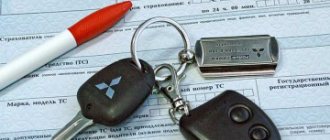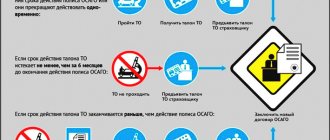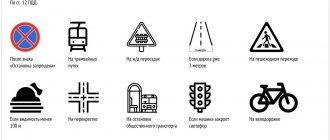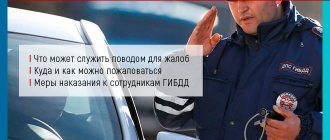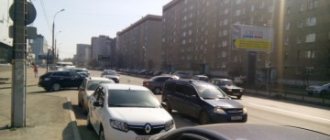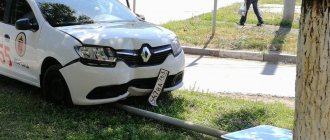The punishment for giving a bribe to a traffic cop is prescribed in the Criminal Code of the Russian Federation and provides for varying degrees of responsibility for both parties, starting with a regular fine and ending with a prison term. Car owners and inspectors must understand that the transfer (receipt) of material assets for any action or inaction is punishable under Art. 290 and 291 of the Criminal Code. Below we will consider what a bribe to a traffic cop is, we will study the legal basis of the situation, the responsibility of the parties and ways to avoid punishment.
What is a bribe to a traffic police officer?
This act is understood as remuneration of an official, which is of an illegal nature, for him to commit illegal actions or not to perform an action that is required by law. When a traffic police officer stops the violator’s car, communication takes place between them. It is during this time that the bribe is given. The driver’s goal is to quickly resolve the problem and continue driving without completing the procedure, as required by law.
The illegal act in this case is two-sided. It is committed both by a law enforcement representative and by the driver.
Attempted bribery
Drivers often take the initiative to “solve the problem on the spot.” Some offer rewards for inaction or a specific action of an employee, without suggesting that even the fact of offering a bribe is punishable by law.
Dear reader! Didn't receive an answer to your question? Our expert lawyers work for you. It's absolutely free!
- Moscow ext 152
- St. Petersburg ext 152
- All regions ext 132 (Toll free)
The Criminal Code contains the concept of “attempted bribery.” It assumes a situation where the transfer of a bribe did not take place due to reasons beyond the control of the bribe giver. In this case, the court may hold the driver liable for the equivalent of bribery.
To make an accusation, the traffic police officer must provide significant evidence. Often these are recordings from a DVR. If it is absent, there will be testimony.
Varieties
The bribe, and with it the liability, varies depending on its size:
- A small size is considered if it is less than twenty-five thousand rubles.
- A significant amount can be for an amount from 25 to 100 thousand rubles.
- A large bribe is qualified if it is given in the amount of 150 thousand rubles or more.
- Particularly large-scale bribery is recorded when a bribe is more than one 1,000,000 rubles.
Responsibility of a traffic cop for accepting a bribe
Punishment for transferring funds to an official for any action/inaction is stipulated in the Criminal Code of the Russian Federation (Article 290). The degree of punishment directly depends on the amount transferred.
When receiving up to 25,000 rubles (personally or through an intermediary):
- penalties - up to 1 million rubles, salary for up to 24 months, 10-50 times the bribe.
- correctional labor - 12-24 months.
- forced labor - up to 60 months.
- prison - up to 36 months. and a fine of 10-20 times the bribe (by court decision).
In the first three cases, activity in a certain area may be prohibited for up to 36 months.
If the inspector took more than 25,000 rubles, he expects:
- fine - from 0.2 to 1.5 million rubles, salary for a period of 6 to 24 months, 30-60 times the amount received.
- prison - up to 6 years and a fine of up to 30 times the amount received (by court decision).
In both cases, activity in a certain area may be prohibited for up to 36 months.
If you receive more than 150,000 rubles as a bribe or in the event of direct extortion, a traffic police officer expects the following consequences:
- financial punishment - from 2 to 4 million rubles, salary for a period of 24 to 48 months, 70-90 times the bribe.
- prison - up to 7 to 12 years and a fine of up to 60 times the amount received (by court decision).
In both cases, activity in a certain area may be prohibited for up to 10 years.
If the inspector received an amount greater than 1,000,000 rubles, he is expected to:
- penalties - from 3 to 5 million rubles, salary for a period of 3 to 5 years, 80-100 times the bribe.
- prison - up to 8 to 15 years and a fine of up to 70 times the amount taken (by court decision).
A ban on holding a specific position for up to 15 years is possible.
Evidence of a crime
Punishment for this offense occurs only when the person has received a bribe. It is considered a decent amount of money that was transferred without any reason. If the parties can prove the transaction, then it will be impossible to accuse them of bribery.
A traffic police inspector who has been offered a bribe has the right to issue a report against the negligent driver. But he must have documentary evidence confirming this fact, namely:
- video, photo or audio recording;
- testimony of witnesses who saw the offense committed.
On the other hand, the driver may try to accuse the traffic cop of bribery, although in this case the latter behaves extremely carefully and rarely mentions a specific amount of money.
How to avoid responsibility?
For car enthusiasts, there are a number of simple rules for protecting against “werewolves in uniform”:
- Record the conversation with the inspector using whatever you can - a voice recorder, a smartphone, a recorder. In the future, this recording will seriously help you in court.
- pay money under any circumstances .
- Stay in the car! It is not necessary to accept an invitation to a patrol car, or indeed anywhere where there are no witnesses. So far you have simply been stopped for inspection, and not detained, much less arrested.
- Don't be afraid or be intimidated. If you didn't hit anyone intentionally, any sanctions will be much less than for bribery.
- Write down who communicated with you : rank, badge number, last name, time when you were stopped.
- Call the hotline of the Internal Security Service of the Ministry of Internal Affairs.
If they threaten to issue a fine or withdraw your license, this should not be intimidating. The fine still needs to be justified. The driver's license is confiscated by the court, not the police. Do not sign the protocol if you do not agree with it.
Once freed from the police, contact a lawyer. He will definitely tell you the plan of action and the authority where you will be helped - the Ministry of Internal Affairs or the prosecutor's office. Describe exactly who you spoke with, rank, badge number, last name of the employee, what his violation was. Please note that you have the right to contact a human rights defender and receive help from him at any stage of the process!
No sanctions for violating the rules of behavior on the road can compare with the punishment for a bribe. Even deprivation of rights will not take away your freedom, and they can be returned ahead of schedule. Whatever happens, do not be cowardly and do not agree to pay a bribe: from the moment you give money to a policeman, you become a criminal.
What responsibilities are provided?
The punishment that the parties may face, as indicated above, varies depending on the amount of money transferred. It is as follows:
- Giving a small bribe to a traffic police officer is punishable by a fine fifteen to thirty times the amount, or forced labor lasting up to 3 years, or a fine ten times the amount of the bribe with loss of freedom for a period of up to 2 years.
- A significant bribe is punishable by a fine, twenty to forty times higher, or a fine fifteen times higher, along with loss of freedom for a period of up to 3 years.
- A large bribe can be punished with a fine of sixty to eighty times the bribe and the inability to hold a certain position for a period of up to 3 years, or a fine of sixty times the bribe, along with loss of freedom for a period of five to ten years.
- Giving or taking a bribe on an especially large scale is fraught with punishment in the form of a fine exceeding it by seventy to ninety times, and the inability to hold certain positions for up to 3 years, or a fine exceeding seventy times the bribe, and loss of freedom for a period of seven to twelve years old.
Important! Also, not only the two parties involved in giving and receiving a bribe can be punished, but also during mediation. Criminal punishment for the latter crime is punishable by loss of freedom for a period of up to 12 years.
Definition and types of bribes
The concept itself means the transfer of money, property to a person holding a position, or the provision of services in exchange for his performing certain actions beneficial to the bribe-giver, or for failing to act for the same purpose.
For such an illegal reward, a traffic police officer may turn a blind eye to the violation committed by a motorist and refuse to draw up a report. Or, with the help of a document, he will present the incident on the road in such a way that the driver is considered not the culprit, but the victim.
Types of bribes are distinguished by the amount offered:
- small size – up to RUR 25,000;
- significant - more than 25,000 rubles, but not more than 150,000 rubles;
- large - from 150,000 rubles, but not more than 1 million rubles;
- especially large size - over 1 million rubles.
This division is provided by law in order to determine the extent of punishment in each case. It directly depends on the size of the amount given and received. Both the giver and the taker of illegal reward can be punished.
Ways to avoid punishment
Thus, both the attempt to take and the receipt of a bribe are equally illegal and threaten both parties with criminal liability. At the same time, there are cases when liability does not arise for one or the other party. These include the following situations.
If the driver gave a bribe, but then he himself admitted to committing the crime. Moreover, he repented of this and is ready to help in investigative activities.
If a traffic cop incited to give a bribe, and the violator was able to film this fact using modern technical means, this will become a real evidence base when accusing the corrupt official.
Inspectors try not to take money into their hands. The usual option is to play a scene during which funds are “lost” in the traffic police car or directly in that part of it that the DVR camera does not perceive.
Ways to prove the guilt of the driver or inspector
A motorist can be caught giving a bribe by:
- video recording of a conversation with an inspector;
- witness statements;
- photo and audio materials of the conversation between the parties.
If the service officer turns out to be honest, he has the right to draw up a report on the attempt to bribe him right at the place where the vehicle was stopped and add evidence to it during the trial of the case.
It is more difficult to confirm the extortion of money by an inspector, since dishonest police officers do not make direct demands and do not take banknotes or an envelope in their hands. A video recorder or audio recording device will help you obtain evidence.
To be able to use them, the driver should not change into a traffic police car to talk. It is better to talk near your car and in front of witnesses. It is also necessary to immediately find out the employee’s name, rank, and badge number immediately after stopping the vehicle, so that you can contact the CSS if he demands money.
More on AutoLex.Net:
How to pass a technical inspection
Incitement
Probably, most drivers have encountered situations where giving a bribe is actually provoked by a traffic police officer. Of course, no one will directly offer to give a certain amount. But the inspector pushes the driver to make the “right” decision.
For example, the protocol is deliberately slowly drawn up, and the driver who violated the traffic rules is vividly described the consequences that await him, and in a very exaggerated manner. The old “good” trick can also be used, when one of the traffic cops stops the offender (the evil policeman), and the other offers to resolve the issue with his intractable partner (the good policeman). Many drivers fall for this trick and voluntarily give money instead of suffering the prescribed punishment. But we must remember that this incitement is illegal, and such situations can be avoided. Here are some recommendations that will ensure that the employee acts within the law.
They record, for example, on the phone. If the traffic cop took the money and it was recorded on camera, it will become evidence in court. And with an open recording format, the employee does not have the right to demand that it be stopped.
You should not go into the inspector’s car, where it is easier for him to apply pressure. The law requires the driver to transfer to a patrol car only when making a lawful detention or arrest of a citizen.
Before leaving, you need to copy down information about the inspector who was involved in extorting a bribe, namely, his name, rank and number on the badge. Next, you should call the security service using the special traffic police helpline.
How the traffic police get rid of everything human
Until recently, it seemed that bribes to traffic cops were as eternal as corruption itself. But it is precisely in this area of the fight against it that impressive results have been achieved: the conveyor of collections for any traffic violations has been broken. True, dishonest inspectors still have the main trough with “deprived” articles, the portions of which have increased many times over.
ALEXEY BOYARSKY, EMIL SULTANALIEV
Only hardships
Coincidentally, shortly before submitting this material, I got confused in the supermarket parking lot: I drove out of it onto the road where I was supposed to enter. And he was immediately stopped by traffic police inspectors on duty opposite. “Driving in the opposite direction on a one-way road” is the meaning of the charge. They even drove me to the supermarket - they showed me the arrow pointer where I should go in the parking lot. “Deprivation of rights for four to six months,” said one of the inspectors and immediately asked: “What are we going to do?” "What options?" — I asked. “It may be different...” the inspector continued the game of suggestiveness. I admitted that I was writing an article about corruption in the traffic police and for me there are no options other than legal ones. This, pardon the pun, won him over: they let me go with a warning to be more careful in parking lots. Then, however, I realized that it was something else. Parking, according to traffic regulations, is considered not a road, but an adjacent territory. And that crew was simply hunting for drivers who did not know the nuances that driving along it against the grain does not fall under the “deprived” oncoming traffic.
My friend N., who was traveling to Crimea along the Don highway in July, had less luck. “Welcome to the ranks of pedestrians!” - the inspector greeted him, invited him into his car and showed him a radar with a photograph and a recorded speed: 153 km/h. The permitted speed was 90 km/h, that is, exceeding over 60 km/h. “The radar has an error of a maximum of two points, and you have as many as three. Deprivation of rights for four to six months,” the inspector threw up his hands and silently began to write.
N., by the way, is not a street racer at all, but quite a father of many children, who simply did not see the danger in driving fast on a good road in a good car. A driver's license is no longer taken away in exchange for a temporary road permit: in the event of an unfavorable court decision, it must be returned ten days after the decision. And if the driver’s request to have the case heard in court at his place of residence is immediately included in the protocol drawn up on the road, then he won’t have to travel a thousand kilometers to court. But the prospect of losing N.’s rights, understandably, upset him - and he offered to come to an agreement with the inspector himself, emphasizing both the accident of the violation and the presence of a large family. “I warn you: it’s expensive,” the officer said and wrote on a piece of paper: “30,000.” They negotiated for 15 thousand rubles - the inspector came to his senses. And, having received the money, he became very friendly: why, he said, are you an adult, but you drive without a radar detector? Here, when the radar detector noticed us, you could slow down from 160 to 110. “Spend 4-5 thousand rubles. “If you buy a good radar detector, you’ll save more,” the inspector admonished N. almost in a friendly manner.
Both stories are typical. If just a few years ago any violation of traffic rules could be a reason for a bribe - what’s more, they often had a hundred in their pocket just in case the inspector stopped, and once he stopped, he would find something to complain about, even a power of attorney or a maintenance ticket - but now the situation has changed dramatically. Traffic police officers aimed at illegal enrichment only catch big fish - violators under articles that imply deprivation of a driver's license. This is driving a vehicle while intoxicated, exceeding the established speed of the vehicle by more than 60 km/h, violating the rules for crossing a railway crossing, entering a lane intended for oncoming traffic, driving in the opposite direction on a one-way road.
And for someone stopped for one of these violations to be released, this, of course, is not a hundred. And not a thousand.
Robots and cops
Not every road sign promises financial assistance to the inspector, but only those violations for which drivers are deprived of their license
Photo: Yuri Martyanov, Kommersant
“At the time of my dismissal at the end of 2010, the salary of a traffic police inspector in Moscow was 25 thousand rubles. per month. The inspectors brought home at least 100 thousand rubles, and if you try harder, then 200-300 thousand rubles. Today, according to my former colleagues, with an average salary of 40 thousand rubles. even 80 thousand rubles. You can’t easily bring it home from above,” says Sergei Ostapyrko, a former employee of the capital’s traffic police, and now a car lawyer. According to another former traffic police inspector, who wished to remain anonymous, many of the generation that came to the road in the 1990s today prefer to switch to desk work: “It’s not possible to hire people like before, but fools who pay 40 thousand rubles. in the rain they will have to clear out traffic jams, but no, it’s better to sit in the warmth.” However, according to the observation of the coordinator of the Blue Bucket Society movement, Pyotr Shkumatov, a new generation of traffic inspectors has come to the road: “They cost 40 thousand rubles for a salary. and they don't buzz. Well, I’ll get better for a salary and a small bride price. But this is by no means the same income as it was before. How is this possible? Where should they go? It’s like with taxi drivers: the golden times when an engineer’s salary was paid in two days are over, but there are still enough people willing to turn the wheel for very little money.”
Already at the beginning of the ten-page information letter on combating corruption, which Dengi was provided by the Main Traffic Safety Inspectorate of the Ministry of Internal Affairs of Russia, one of the explanations is contained. “Targeted work on the development of systems for automatically recording violations ... not only helps to increase the efficiency of traffic control, but also minimizes the subjective (human) factor, the contact of police officers with road users,” the document says.
Indeed, there are no cameras yet only in Dagestan and Chukotka. In total, there are 5.3 thousand stationary and more than 4.1 thousand mobile complexes for automatically recording traffic violations across the country, and last year, with their help, more than half of all administrative offenses (40.6 million) were already detected. Thanks to the DVRs too. Although the State Duma proposed banning them, the State Traffic Safety Inspectorate in its document notes that in the first half of this year, these devices supplied information to confirm the fact of a violation almost 230 thousand times, and almost 160 thousand times it became the basis for bringing violators to administrative responsibility. In addition, this information was used 10 thousand times when considering citizens’ complaints, and DVRs were used 1.8 thousand times “to establish facts of violations of duty by State Traffic Inspectorate employees, using video recordings, 644 facts of violations of traffic rules were established.” Do not openly turn on your smartphone in video recording mode if you are stopped by an inspector: “Road users are recommended to more actively use video recording equipment when communicating with State Traffic Inspectorate employees.”
Building an anti-corruption system in the Russian traffic police can truly be called comprehensive. As you know, bribes to civil servants are often given not for violating norms, but for speeding up legal procedures. This concerned the traffic police to the fullest extent, when paying even a penny fine turned into a quest: first there is a queue at Sberbank, then you take the paid receipt to the traffic police department. Of course, it was easier to pay the “fine on the spot” into the inspector’s pocket. Today, you can simply find your fines on the traffic police website and pay them in a few clicks (in 2014, citizens checked their fines online more than 43 million times), and the idea of paying a traffic cop on the spot under a “non-deductible” article, perhaps, could only occur to a driver, to whom the inspector offered to pay much less than what was officially due. (Which, however, is practiced, given the sharply increased fines for many violations, for example, for parking in the wrong place.)
“If five years ago every driver was faced with an unequivocal offer from a traffic police inspector, today the inspector himself will not ask for a bribe,” says Shkumatov. “This is primarily due to the proliferation of audio and video recording devices. They are on the road, in a traffic police car. And most importantly, the driver himself and his passengers with smartphones and video recorders. Secondly, public trials began to take place: previously only his colleagues knew about the criminal prosecution of a traffic police officer, now all this is widely covered in the media. They are afraid to take it."
As Dengi was told by the Main Directorate of Traffic Safety Inspectorate, in 2014, 379 corruption crimes committed by traffic police officers were suppressed, including 210 facts of bribery, 94 excesses and abuses of official powers, 75 facts of official forgery.
According to the Internet query “Staff Police, bribe, court,” only in 2015 many references to criminal prosecution of heads of departments and departments of the State Traffic Safety Inspectorate from all over Russia pop up. On June 10, 2015, the head of the Transbaikalia traffic police was sentenced to ten years for bribery; on July 15, the former chief state traffic inspector of Mordovia was given ten years. And back in July 2015, a Muscovite received five years in prison for trying to give a bribe of 200 thousand rubles to buy back the license taken away the day before on the road for drunkenness.
Techniques against scrap
The corruption system understandably resists attempts to make it transparent, and although there have been serious successes in the fight against extortion, the complete eradication of bribes is still far away. For example, standing and catching people speeding over 60 km/h on a section of road with good visibility and surface, but within the coverage area of a sign limiting speed to 40 km/h is a classic. Then erasing the photographic data of the violation from the device for a bribe is not a problem. Somehow inspectors get around other restrictions. In the case of my friend N. on the Don highway, the inspector seemed to be writing something on a form. They are numbered. But somehow he stopped writing? What about the “recording gadgets” that, according to the traffic police, are equipped with patrol cars? N. handed over the money in the car, and nothing. “When the court begins to request recordings from cameras, they are often strangely not found,” comments Ostapyrko. “A terrible virus on the server devoured them, or the storage period has expired. In addition, the southern route, the southern regions - there is still less control there. And they probably know what is written in their car and how.”
Or take the main “deprivation” article - drinking. In this case, unlike others, there is no choice - deprivation of rights or a fine - by court decision, but only (and then for the first time) a fine of 30 thousand rubles. with simultaneous deprivation of rights for 1.5-2 years. It would seem that today the inspector has no opportunity to conduct an “unofficial” examination of a drunk driver: already 91.2% of posts have a regular state breathalyzer. You won’t be able to “tweak” it: all positive test results are recorded in the device’s memory and must be documented. But where did our people disappear? The driver is asked to breathe into the inspector's own pocket breathalyzer, which is strictly prohibited and punishable. If the driver is not entirely confident in himself, as he noted yesterday, it is not difficult to convince him to blow into a non-government device. And the inspector’s tester may well be tweaked: it shows the required ppm. If the driver also wants to blow into the standard device, then he is informed: it won’t work here like with a radar - it will no longer be possible to erase the readings and reverse the case. Really. A driver who is unsure of his “exhaust” usually does not take risks and pays.
“On the road, a drunk driver can pay off for 30-50 thousand rubles - until recently, such tariffs were in Moscow,” says Shkumatov. “But if you couldn’t pay off on the spot, then returning the license from the department will cost 200 thousand. rub."
After all, according to the law, it’s like this: the inspector passes the report to the department, where they decide whether it’s enough to limit themselves to a fine, or whether they should be deprived of their rights. If they consider it necessary, then they refer it to the court, which may also not take away the right and impose a fine. And if they do not consider the violation worthy of such a harsh punishment (for example, an oncoming driver drove around a parked truck blocking his lane), then the case is not taken to court - they are simply fined if the article implies a penalty. In principle, you can pay off even under the article for drunkenness, for which there are no punishment options: the protocol will turn out to be “wrongly drawn up” and it will not be sent to court.
In general, everything is “in principle”: often today it is impossible to “agree” on the road, and even more so in the department. They will charge the driver only after making sure that he really wants to part with the money and close the issue. “Quite a competent job,” former traffic police officers commented on the situation with N., to whom an inspector gave a paid lecture on the benefits of radar detectors on the Don highway. “Back in the 1990s, old traffic cops taught us the main principle: “the driver should leave you happy.” . You detained a person not for a far-fetched, but an obvious violation. Honestly described the possible consequences. That is, he created a base for providing services. And you don’t need to extort anything, the person himself persuades you to solve the problem. You agree, doing him a favor. And you should never put pressure on a person, taking away the last thing; let him pay as much as he can. Then he gives you the money with gratitude and subsequently poses no danger either to you or to your colleagues.”
The most likely way for a bribe giver to run into trouble is during a special raid. But what about the described case with the Muscovite who carried 200 thousand into the office? He was handed over without any raid. According to the experts I interviewed, this happens when a client is first rude and threatens to imprison everyone, and then, seeing that the threats do not work, offers a bribe. No one will take anything from such a person, and if you try to give, they will give you away.
Side income
Public criminal trials are now going on not only against bribery traffic cops, but also against bribery drivers
Photo: Hubert Golsteyn, Kommersant
The company or battalion commander still sometimes assigns a crew that has no duty duties and no plan for issuing orders, but does have a plan for collecting funds for the commander. It is increasingly difficult to allocate special crews: personnel were fully affected by the reduction in the number of the Ministry of Internal Affairs by 20% in 2010.
Inspectors are still involved in insurance fraud. A very harsh story happened in Khabarovsk: a traffic police inspector bought a jeep that was trashed, insured it as a whole, and then faked an accident - he dumped the car into a ravine. The “road accident” was recorded by fellow colleagues. The inspector expected to receive 1.3 million rubles from the insurance. Much more commonplace, of course, are other options: for example, when a driver who left the scene of an accident asks to fill out documents for the insurance company. If the damage is not serious, the inspector will do it for a bribe of approximately 5 thousand rubles.
The court determines who is at fault for the accident. But it determines it based on the road situation described by the traffic police inspector. Bribing an inspector to make someone else the culprit is not uncommon, and prices vary widely.
However, the traffic police department has many opportunities that do not concern the private driver, but bring a stable and less risky income. For example, many trucks drive overweight. This is often clear even without weighing - the weight of the cargo in the consignment note exceeds the permissible carrying capacity of the vehicle. The same people constantly drive around the site, delivering goods to the same points. For a certain “subscription fee” from the transport company, you can turn a blind eye to this. If the inspector reveals an advantage, the driver calls the “major”, and he resolves the issue with his subordinate. The traffic police “protects” businesses on its territory in other ways. “Car transporters deliver new cars to the dealership of a famous car brand. But the yard there is small, they can only unload them in front of the gate, on the street, which creates problems for traffic,” says Ostapyrko. “At first the local traffic police forbade them to do this, and then suddenly allowed them. One can only guess how much they pay the boss monthly for this.” It is no longer particularly fashionable to unofficially order your car to be escorted by a traffic police vehicle with a flashing light, but it is still possible. “In Moscow it costs from 50 thousand rubles,” says Ostapyrko. “For example, the host party ordered such accompaniment for one Hollywood star from the film set to the airport. We paid 80 thousand rubles, but this included the intermediary’s share.” But driving with a “traffic police chief’s business card” has already, one might say, sunk into oblivion, although it still occurs in the provinces. As Damir Gurin, a member of the Joint Public Observation Group in the Republic of Mordovia, said, the price of such a business card there started from 70 thousand rubles. “A person deprived of his license or a truck driver carrying undocumented or prohibited products could drive with such a special pass,” says Gurin. “But these business cards have disappeared for just over a year now, as a result of the criminal prosecution of the former head of the State Traffic Safety Inspectorate of Mordovia, Alexander Sheludyakov.”
Rights and numbers
Camera recordings have already become the basis for half of the total number of cases of bringing traffic violators to administrative responsibility
Photo: Oleg Kharseev, Kommersant
It is no longer possible to simply buy a license so that it can be delivered to your home, as before, and even real ones. Advertisements about “sale of used cars”, upon closer examination, have nothing to do with the traffic police and turn out to be pure fraud: for 20-25 thousand rubles. the courier will bring a beautiful fake.
We put things in order with electronic databases. A unified database of driver’s licenses issued in all regions has been created; it is impossible to get into it and simply issue a license. In the same way, you cannot get into the database of passing the driving test. In addition, now they are not allowed to take the exam after self-preparation - only after graduating from a driving school - another entry in the history of obtaining a license.
Passing the exam for a bribe is also more difficult. In the theoretical exam, the computer randomly issues a ticket. Driving, which is still taken by a living person, is another matter. “At the driving school they start to scare you with a tough exam, nagging examiners and offer to pay 10-15 thousand rubles right away. in addition to the cost of training, supposedly for the receiving inspector, so that he turns a blind eye to the little things that usually fall on, like the turn signal not being turned on. But it’s the little things. In any case, he will not be able to “not notice” major mistakes - both in the camera in the examination machine and on the site,” says Shkumatov. However, according to other sources, for 15 thousand rubles. the inspector (plus the intermediary’s margin, which can greatly cover this amount), in order to pass the driving test, simply show up for it.
Traffic police officers have been deprived of income from technical inspections since 2011, and since 2013, the feeder for issuing beautiful license plates has also been closed. Now, those who apply to the traffic police are not given a license plate, but a piece of paper with numbers and letters that are randomly issued by the system. The license plate is made later. The only thing a traffic police officer can do is write down the data of the recipient of a beautiful license plate and pass it on to license plate dealers. And they will call the owner with an offer to buy a number from him. “The scheme is completely legal,” comments Shkumatov. “The owner of a car with a beautiful license plate is ‘sold’ some kind of car. He will re-register his beautiful license plate to this other “his” car - he now has such a right. But in reality he gets another, probably already ordinary number. After that, he sells the second car back, but with a nice license plate. The number remains with the new owner.” Specialized intermediaries sell beautiful rooms for 100-300 thousand rubles. There is also an open question about the sale of “beautiful” numbers of a different kind - those that will not attract fines. “I can offer a number with the letters AMP in the Moscow code, once assigned to a vehicle of the Ministry of Defense. He is “white”: he does not receive fines from cameras, neither for speed, nor for parking, nor for allocated lanes, nor for oncoming traffic. The owner wants 500 thousand rubles for it,” they offered me in one of the intermediary offices. Is it possible?
In 2011, when the mass installation of video recording cameras began, in an interview (https://www.kommersant.ru/doc/179261) with the responsible traffic police officer, I asked how the system would distinguish cars with flashing lights, which by law have the right to exceed the speed limit , and in addition, issue fines to deputies, judges, and prosecutors: according to the law, it is generally prohibited to fine them. “There is no database of untouchable numbers built into the system. Decrees are sent to the owners - individuals or legal entities - of absolutely all cars,” they answered then. It was assumed that those who have special rights on the road would protest the received decisions. However, very soon a separate list appeared in the database. “It became obvious that it was needed. It got ridiculous when the ambulance driver was sitting in line at the traffic police to protest the fine,” says Ostapyrko. “After the numbers of the ambulance, fire, police, FSB and others, they apparently began to enter the numbers of other cars driven by some These are difficult people."
One way or another, experts agree, the number of positive changes in the traffic police is gaining momentum, which could become critical for corruption if bribery on the road finally goes out of fashion and no one feels untouchable. Not only traffic cops, but also drivers must change.
“You should have said that you were going to get the money, and called the CSS yourself, we would have caught these bribe takers red-handed,” an employee of the Main Department of Traffic Traffic Inspectorate commented on my story in the parking lot. To be honest, this would never have occurred to me myself.
Other materials in the “Anatomy of Corruption” series:
Unified State Exam and Dissergate
How the education reform affected bribe takers and plagiarists.
Shoulder straps and fittings
How they make money from conscripts and soldiers.
Cops and werewolves
How to fight corruption in law enforcement agencies.
Real examples
If all this seems to you like baseless horror stories that have no connection with real life, you are mistaken. Here are some real examples from courts in Russia:
- In the Babushkinsky District Court in Moscow, on September 2, 2015, citizen Jabbarov was found guilty of a crime under Part 3 of Article 30, as well as Part 3 of Article 291. For taking the dacha, he was sentenced to a fine of 120 thousand rubles and prison for 2 years.
- In the Lyublinsky District Court in Moscow on July 27, 2021, citizen Rakhimov was found guilty of a crime under the same articles (for giving a bribe of 1000 rubles). For this he was fined 30 thousand rubles.
- In Voronezh, in the Leninsky District Court on May 31 of this year, citizen Monko was convicted of the same crime. He was sentenced to 1.5 years in prison.
Thus, for giving a bribe to a traffic police inspector there are real penalties in the form of fines and prison terms. At the same time, it is now easier for officials to prove the guilt of drivers, since they have recording devices installed in official vehicles.
What should you keep in mind?
Verification of documents
Suppose you were stopped by a traffic police officer on the road when you violated the rules. In this case, you can try to give a bribe, but this will not always lead to the desired consequences. Article 290 of the Russian Criminal Code has a precise definition of the term “bribe”, which is where you need to start. To make it easier for you to understand, we will explain it in more understandable words.
The receipt by a representative of the law personally or through an intermediary of funds, securities or any valuable property, or the provision of property rights to him for certain actions or inaction in favor of the violator - this is a bribe. This applies to situations where actions or inactions are within the official powers of an official, that is, when a representative of the law deliberately did or ignored something, receiving a certain reward for it.
People who give a bribe to traffic cops must understand that in this way it is not always possible to resolve issues on the spot, avoiding responsibility, because this is a criminal offense. For this you can be held accountable under Article 291 of the Criminal Code of Russia - but you face a real prison sentence. Depending on the size of the bribe, the law establishes different types of liability and punishment.
Examination
It’s rare, but it still happens that traffic cops try to identify bribe-takers and deliberately provoke the driver to give a “reward.” Such operations can be carried out jointly with the Department of Economic Crimes, whose employees record the giving of a bribe using devices installed in advance.
If a traffic police official speaks clearly and loudly about the amount of the bribe, and does not even hint, but directly offers to solve everything in a quick way, it is worth considering that something is clearly wrong, most likely a hidden recording is being made.
